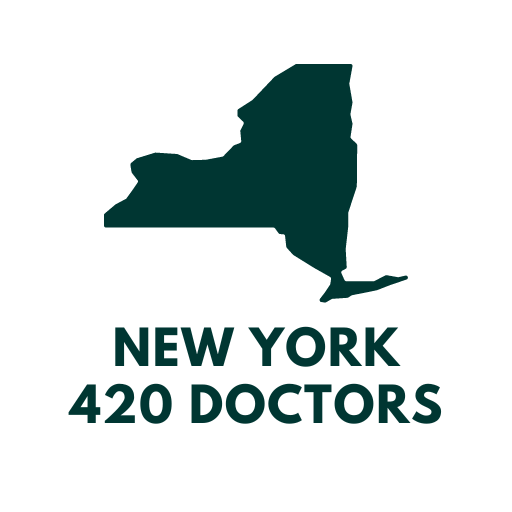The New York Medical Marijuana Program has expanded significantly since its launch in 2014. Initially, the program allowed only a small group of patients with severe conditions to access medical cannabis. However, with growing evidence of the therapeutic benefits of marijuana, the state has broadened the list of qualifying conditions, making it easier for patients with a variety of illnesses to obtain a Medical Marijuana Card New York.
This article explores the current qualifying conditions for a NY Medical Marijuana Card, the process of certification, and how patients can access the treatment they need through certified New York Medical Marijuana Doctors.
The Original Qualifying Conditions Under the Compassionate Care Act

When the Compassionate Care Act was passed in 2014, the New York medical marijuana program began with a very narrow list of qualifying conditions. Only patients with severe and life-threatening illnesses were allowed to apply for a Medical Marijuana Card NY.
The original conditions included:
•Cancer
•HIV/AIDS
•Amyotrophic Lateral Sclerosis (ALS)
•Epilepsy
•Parkinson’s Disease
•Multiple Sclerosis (MS)
•Spinal cord injuries with spasticity
•Inflammatory Bowel Disease (IBD)
•Neuropathy
These conditions were chosen because of their association with chronic pain, muscle spasms, or seizures that could not be effectively managed with traditional treatments. However, the narrow scope of the original law left many patients without access to medical cannabis, especially those suffering from chronic conditions that were not terminal .
Expanding Access: The Addition of Chronic Pain and PTSD

In response to patient demand and emerging research on medical marijuana, the state of New York expanded the qualifying conditions for a NY Medical Marijuana Card in 2016 to include chronic pain. This addition allowed thousands of new patients to join the program, especially those dealing with pain that could not be managed by opioids or other medications. Chronic pain is now one of the most common conditions treated with medical cannabis in the state .
In 2017, the state further expanded the program to include Post-Traumatic Stress Disorder (PTSD). This change was particularly beneficial for veterans and individuals with anxiety and trauma-related conditions. Medical cannabis has been shown to help alleviate the symptoms of PTSD, such as nightmares, anxiety, and hypervigilance .
Current List of Qualifying Conditions (2023)
As of 2023, the list of qualifying conditions for a New York Medical Marijuana Card has continued to grow. Patients with a broad range of medical conditions can now apply for a NY Medical Marijuana Card if their healthcare provider believes that cannabis may benefit them. The current list includes:
1. Chronic Pain: Defined as any pain that persists despite other forms of treatment. Medical marijuana is often prescribed as an alternative to opioids for chronic pain management, particularly in patients suffering from conditions like arthritis, back pain, or fibromyalgia.
2. Cancer: Medical marijuana can help alleviate symptoms of cancer, including pain, nausea from chemotherapy, and loss of appetite. Many cancer patients use cannabis to manage these side effects and improve their quality of life.
3. HIV/AIDS: Cannabis is often used to combat the wasting syndrome, nausea, and pain associated with HIV/AIDS treatments.
4. Amyotrophic Lateral Sclerosis (ALS): Patients with ALS often experience muscle spasms, pain, and difficulty with mobility, all of which can be alleviated through the use of medical marijuana.
5. Parkinson’s Disease: Parkinson’s patients use medical cannabis to manage tremors, muscle stiffness, and other symptoms of the disease.
6. Epilepsy: Cannabis, particularly strains high in CBD (cannabidiol), has been shown to reduce the frequency of seizures in patients with epilepsy.
7. Multiple Sclerosis (MS): Medical marijuana helps manage the muscle spasms, pain, and fatigue associated with MS.
8. Inflammatory Bowel Disease (IBD): This includes conditions like Crohn’s Disease and ulcerative colitis, which cause chronic inflammation and pain in the digestive tract. Medical marijuana can help reduce these symptoms.
9. Neuropathy: Patients suffering from nerve damage, whether due to diabetes, chemotherapy, or other conditions, often experience chronic pain that can be managed with medical cannabis.
10. Spinal Cord Damage with Spasticity: Spinal cord injuries often lead to chronic muscle spasms and pain, which can be relieved with cannabis.
11. PTSD (Post-Traumatic Stress Disorder): Cannabis has been widely used to manage symptoms of PTSD, particularly in veterans, by helping to reduce anxiety, improve sleep, and prevent flashbacks .
Discretionary Conditions: Expanding the Scope
In addition to the defined list of qualifying conditions, New York Medical Marijuana Doctors have the discretion to certify patients for medical cannabis if they believe that the patient’s condition could benefit from marijuana. This flexibility has allowed doctors to use medical marijuana as a treatment for conditions that may not be explicitly listed but are still debilitating or chronic.
For example, conditions like anxiety disorders, insomnia, and depression are increasingly treated with medical cannabis, despite not being on the formal list of qualifying conditions. The inclusion of discretionary approval gives doctors more autonomy to assess each patient’s unique case and determine whether cannabis is a suitable option .
How to Get a NY Medical Marijuana Card

For patients with qualifying conditions, obtaining a NY Medical Marijuana Card is a relatively straightforward process. Here’s how it works:
1. Consult with a Certified Practitioner
Patients must consult with a New York Medical Marijuana Doctor, nurse practitioner, or physician assistant who is registered with the state’s Medical Marijuana Program. The healthcare provider will evaluate the patient’s medical history, diagnose their condition, and determine if medical cannabis is an appropriate treatment.
2. Receive Certification
Once the patient’s condition is certified by a provider, the doctor will issue a medical marijuana certification through the Office of Cannabis Management’s online system. This certification is the key document needed to apply for a New York Medical Marijuana Card .
3. Register with the State
After receiving certification, patients must register with the New York State Department of Health through the Medical Cannabis Data Management System (MCDMS). The registration process is completed online, and once approved, patients will receive a temporary card that they can print and use immediately. The permanent card is usually mailed within a few days.
4. Access Licensed Dispensaries
With the NY Medical Marijuana Card in hand, patients can visit any licensed dispensary in the state to purchase their prescribed cannabis products. Dispensaries offer a variety of products, including flower, edibles, tinctures, vape cartridges, and topical creams, allowing patients to choose the form of cannabis that best suits their treatment needs .
Conclusion
New York’s Medical Marijuana Program has made significant strides in expanding access to patients with a wide range of qualifying conditions. From its restrictive beginnings under the Compassionate Care Act to its current, more inclusive model, the program now allows patients with conditions such as chronic pain, PTSD, cancer, and more to benefit from medical cannabis. By consulting with certified New York Medical Marijuana Doctors, patients can receive the certification they need to obtain a NY Medical Marijuana Card and access the treatment that helps them manage their symptoms and improve their quality of life.

